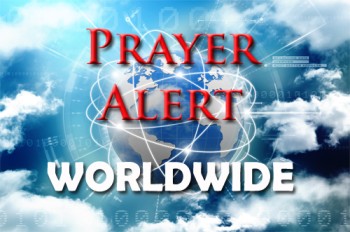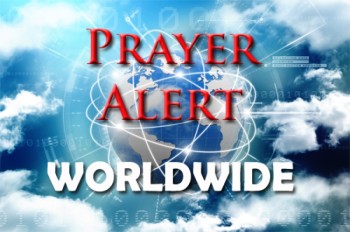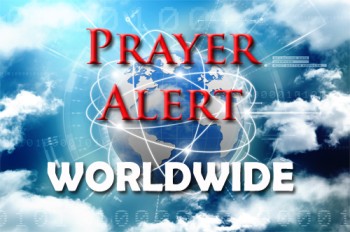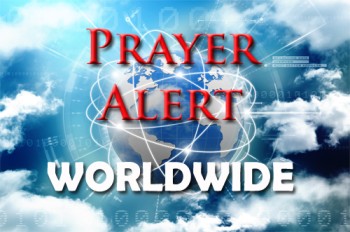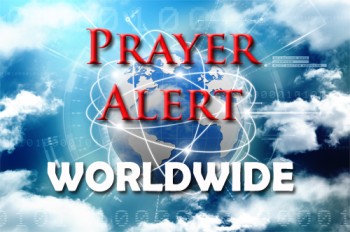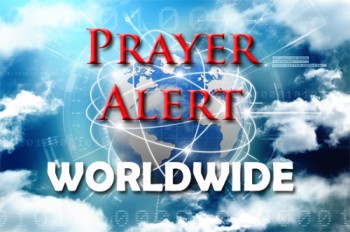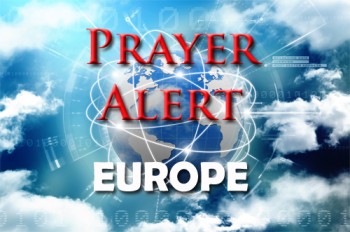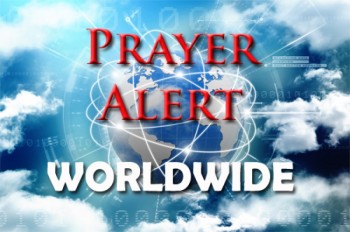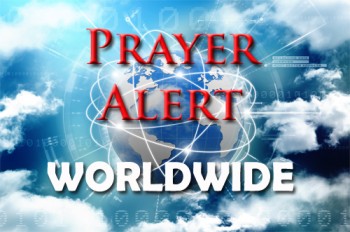Displaying items by tag: Mali
Mali: abuses by former Wagner mercenaries
Testimonies from refugees in Mauritania reveal severe human rights abuses committed during counter-insurgency operations in Mali involving Russian mercenaries formerly associated with the Wagner Group. Witnesses describe arbitrary detentions, torture, and extrajudicial killings as civilians were accused of aiding jihadist insurgents. One former shopkeeper recounted being detained, threatened, and mistreated before later fleeing the country with his family. Others reported loved ones killed without explanation or being beaten while performing everyday tasks like herding livestock. Human rights monitors say these actions have spread fear and driven tens of thousands to flee across the border. Although Wagner has formally withdrawn, many of its operatives are now part of Russia’s Africa Corps, and concerns remain that abuses continue under a new name. Calls are growing for accountability and justice for victims, as communities struggle with trauma, displacement, and the loss of safety in their homeland.
Algeria: president offers to mediate between Malian authorities and rebel Tuaregs
Algeria’s president, Abdelmadjid Tebboune, has offered to mediate between Mali’s military-led government and northern rebel groups, including Tuareg and Arab nationalists, amid escalating regional tensions. However, he clarified that he would only step in if formally invited by Mali. His statement comes after Mali's junta withdrew from a previous Algeria-brokered peace deal and replaced UN peacekeepers with Russian Africa Corps mercenaries, formerly Wagner. Algeria has refused to tolerate mercenary forces on its 1,400 km shared border, despite its own longstanding ties with Russia. Mutual accusations have intensified, with both countries alleging drone strikes and cross-border incursions. Mali has accused Algeria of harbouring militants who conduct attacks from Algerian soil, a claim Algiers denies. The withdrawal of the UN’s MINUSMA peacekeeping force in 2023 has left a security vacuum in northern Mali, now filled by armed factions and foreign operatives. Tebboune’s call for diplomacy reflects Algeria’s concern over instability and the threat of wider conflict spreading across the Sahel region.
Mali: former police chief sentenced by ICC
The International Criminal Court (ICC) has sentenced Al-Hassan Mahmoud to ten years in prison for war crimes committed during his tenure as head of the Islamic police in Timbuktu, Mali. He was found guilty of torture, overseeing public amputations, and organising brutal floggings, including of children, under the al-Qaeda-linked Ansar Dine group, which seized the city in 2012. The presiding judge described the sentence as ‘proportionate to the gravity of the crimes’, acknowledging the harm caused to victims. However, Al-Hassan was acquitted of charges of rape and sexual slavery: the ICC acknowledged that sexual violence had occurred, but said he was not directly responsible. Rights groups expressed disappointment, noting testimonies of women being raped in detention. In 2016 the ICC sentenced another Ansar Dine member to nine years for destroying Timbuktu’s ancient shrines.
Mali cuts ties with Ukraine after rebel attack
Ukraine has criticised Mali's decision to sever diplomatic ties, calling it short-sighted and hasty. This decision followed comments from Ukraine's military spy agency about the recent clashes in northern Mali, where Tuareg rebels claimed responsibility for killing 84 Russian Wagner mercenaries and 47 Malian soldiers. This was Wagner's most significant defeat since assisting Mali's military against insurgent groups two years ago. Ukraine denied involvement, stating no evidence was provided. After the spy agency mentioned that rebels had received ‘necessary’ information for the attack, Mali interpreted this as an admission of Ukraine's involvement, condemning it as a violation of sovereignty and support for terrorism. Senegal summoned Ukraine’s ambassador over related accusations. These events occur amid deteriorating relations between the West and Sahel nations, which have expelled French and US forces and turned to Russian mercenaries for security following recent military coups in Mali, Burkina Faso, and Niger.
Mali: forty killed in violent attack
Around forty people were killed by unidentified armed men in a village in central Mali on 1 July. The attack, which occurred during a wedding, caused panic and forced many to flee. Survivors reported the attackers surrounded the village and opened fire. No group has claimed responsibility, but groups linked with al-Qaeda and IS have been active since 2015. They have seized territory, making parts of the country ungovernable. Despite promises to tackle insecurity, Mali’s military government, which took power in a 2020 coup, has struggled to control the violence. It has also been accused of human rights abuses. The UN peacekeeping mission in Mali ended its deployment last December, in a pullout ordered by the government.
Mali: Jihadis kill 132 civilians
Attacks by jihadi rebels in central Mali have killed 132 civilians, showing that Islamic extremist violence is spreading from Mali’s north to more central areas. For several weeks rebels have been blocking the road between Gao in the north and Mopti in central Mali. The United Nations peacekeeping mission in Mali is concerned by the extremist attacks against civilians in the Bandiagara region that have caused casualties and displaced populations. In a separate incident, a U.N. peacekeeper died from injuries sustained from an improvised explosive device. Since the beginning of 2022, several attacks have killed U.N. uniformed peacekeepers. Attacks on peacekeepers constitute war crimes. The U.N. peacekeeping mission began after France went there to remove rebels who were capturing cities and major towns the year before (2014). They currently have 12,000 troops, 2,000 police and other officers in Mali. Over 270 peacekeepers have died in the U.N.’s deadliest peacekeeping mission.
Niger: abducted priest freed after two years
When Fr Pier Luigi Maccalli, now 59, was kidnapped two years ago by unknown armed men from his parish of Bamoanga, it left the communities he had served for 11 years in shock. Now he is understood to have been freed in northern Mali with four other hostages also held by Islamist extremists. The new Malian transitional government met the hostages. Their release, and that of some suspected militants, fuelled expectations of an imminent prisoner swap. It is not clear if ransoms were paid.
France: military action in Mali
Mali was under French colonial rule until early 1959, when it assumed independence. However, France has 5,500 troops there working to keep the peace. Now France’s defence minister has said they will boost its military presence in the area to counter increasing violence carried out by armed groups. 600 additional troops will be deployed by March. On 14 February at least 40 people were killed in Ogossagou, the Fulani village that was targeted in a massacre of 160 people last year by Dogon militiamen. Huts and crops were set alight, livestock burned or taken away, and 28 people are missing. Clashes between the Dogon and Fulani ethnic groups are frequent, compounding a dire security situation in Mali's semi-arid and desert regions, where attacks by armed groups are common. See also
Mali: entire Christian village massacred
Between 100 - 135 people were slaughtered by heavily-armed Islamist extremists in a mainly-Christian village in the Mopti region of central Mali. Barnabas Fund described it as the ‘worst Mali massacre since 1946’. The jihadists encircled the isolated village of ethnic Dogon people at night and set fire to ‘everything’ in a ‘well-targeted attack’. All the victims were shot dead or burnt to death; some were charred beyond recognition, making it difficult to identify them. They set fire to all who ran and all who did not dare to go out. Only a few men escaped the gunfire. A survivor said, `About 50 heavily armed men arrived on motorbikes and pickups, surrounded the village and then killed anyone who tried to escape. No-one was spared – women, children and elderly.’ Since 2018 many Christians have been killed, abducted or forced to flee, with churches ransacked in an attempt to establish sharia law.
Mali: 130 villagers murdered
Dogon gunmen recently surrounded a community of Fulani herders in Mali and murdered over 130 men, women, and children with guns and machetes. The village was left in smouldering ruins. Ethnic and jihadist violence has spun out of control. In fact, UN ambassadors were in Mali to discuss the crisis when the massacre took place. Since a 2015 peace agreement, ethnic groups have continued to resort to violence to settle their differences. Islamic militants take advantage of the chaos, securing safe havens and new recruits. Hundreds of lives have been lost as the violence has escalated. Dogon hunters and semi-nomadic Fulani herders fight over access to land and water. The Dogon also accuse Fulanis of ties to jihadist groups. The Fulanis say Mali's military arms the hunters to attack them. Less than 10% of citizens have heard of Jesus. However no nation is a lost cause. See
